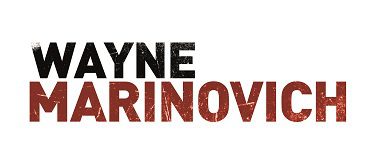Writing a novel

Topics
- Fiction or non-fiction
- Once off hobbyist / Serious career author
- Decide early – Your thinking might need to change
- Make time, don’t find time
Fiction or non-fiction
The first and most obvious step is to decide what type of book you want to write. This decision depends on whether you are trying to produce content to help people or something to entertain them. It will naturally be directed by the love of one of your hobbies. Something which you feel the urge to share and write about.
As a non-fiction writer, you will need to be an expert in that area so you can generate the content which will help your targeted readers. Many people do try to write about their hobby, and a decision needs to be made whether someone will pay money for what you have written, and also, tell others after reading it.
As a fiction writer, you need to understand the genre and style you want to write in, and this will probably have been shaped by the type of reading you enjoy. Throughout these series of the articles, I’ll be focusing on fiction writing because it is what I do. There are many books that can be found on Amazon which will detail the how to write a non-fiction book.
Once off hobbyist / serious career author 
You look down your bucket list and see all the things you have ticked off in your life. At the bottom is the sentence “Write a Novel”. It’s at the bottom because all the easier things leap-frogged over it.
Producing a piece of writing that people will read was something you’ve wanted to do as a kid since you realised that you loved reading. You may have typed a few sentences on a page that forever remained incomplete. It’s long been a dream so now you sit down and type “Chapter one” on a blank page. You might be a hobbyist.
Or, you loved writing essays for English class, pitching news items to the local newspapers and entering Readers Digest short story competitions. Now you sit down and type “Chapter one”. You might visualise doing this every day for the rest of our life.
Making the decision between being a hobbyist, a part-time or full-time author is a personal one and something you need to come to for yourself. How much passion do you have for the task at hand because when you are re-editing your manuscript for the tenth or eleventh time, it is that passion which will make it seem bearable?
Writing is hard work. It is even harder to see it through to the end. Whatever path you do decide to take must be worthwhile to you.
Decide early because your thinking might need to change
The best advice I can give to you is, to be honest, and realistic about what you can achieve. It will help further down the line. Whether you choose to write a single book over a ten year period or produce ten books during the same time, make that decision as early as possible then embrace it as you sit down to write
Why is that so important? Well, writing is a long term apprenticeship that takes time and commitment to perfect. While there is nothing wrong with slowly finding your way and learning from your mistakes as you go, if you’re thinking about the long game, you can eliminate needless mistakes early on. If you only want to write a novel to show your family and friends or to tick off that bucket list item, do you need things like an Author webpage, Amazon author profiles, press kits, dedicated social media pages or mailing lists? Probably not.
What do those things have to do with writing? They are the required tools and skills of the modern day career writer (traditionally or self-published)because they will help you understand your readers and the market that you are going to sell into.
Laying that foundation at the earliest possible opportunity will mean that you hit the ground running and can leverage off a wider audience platform. If you only intend to write one book, these platforms are not as important in the planning phases of the novel.
You should read a few books about writing and self-publishing to give you a good understanding of how to get a better product out to the market. Yes, first and foremost, you need a good quality book, but if you are looking at this as a possible career, you have to start understanding the publishing world (Traditional and Self-publishing) at an early stage. It’s a big market that’s undergoing a momentous change as new reading formats compete with one another.
Publishing books I’ve read (and re-read many times)
- Joanna Penn – How to market your book
- KM Weiland – Structuring your novel
- Sean Platt, Johnny B. Truant – Write, Publish, Repeat
- James Scott Bell – How to make a living as a writer
- Stephen Pressfield – The War of Art (my creative bible)
Make Time. Don’t’ try and find time.
All fitness gurus will tell you that you need to make time in your hectic lives to train a few times a week. So, unless you are already a full-time author, retired or independently wealthy, you will have some form of day job that pays you a salary. And so with your writing, you have to be even more committed than just “a few times a week.”
You are a writer, so make time to write. I’ll repeat that last bit. Make time, don’t try and find the time. Write every day. Block out time in your diary. Schedule your social events around writing not the other way around.
Even if you have a full-time job, six kids and a farm to run, set yourself a target. Writing as little as a hundred words a day can make a difference. Yes, it might take you longer to get the book published, but you will be writing, and that is what matters. Remember, there are more part-time authors out there than there are full-time ones. No matter what excuse you might come up with, someone else who has the same commitments as you is busy publishing while you sit with your excuses.
Think of it another way, if you could write one page each day, in one year you would have 365 pages. That is a novel.
I try for about a 1000 words each day. On some days, I can sit down and fly through 3000, others days I limp to a few hundred on a blog post for my website. Yes, that is also writing.
By outlining all my work first, I find it easier to write as I am not focusing on what to write, but how to write what I want to write. I’ll be covering more about outlining in a future article.
Futher reading
Read the next part – Part 2 – Ideas and Concepts
Please click on the button below if you want to receive my newsletter with tips, book release updates and FREE sign-up gifts










